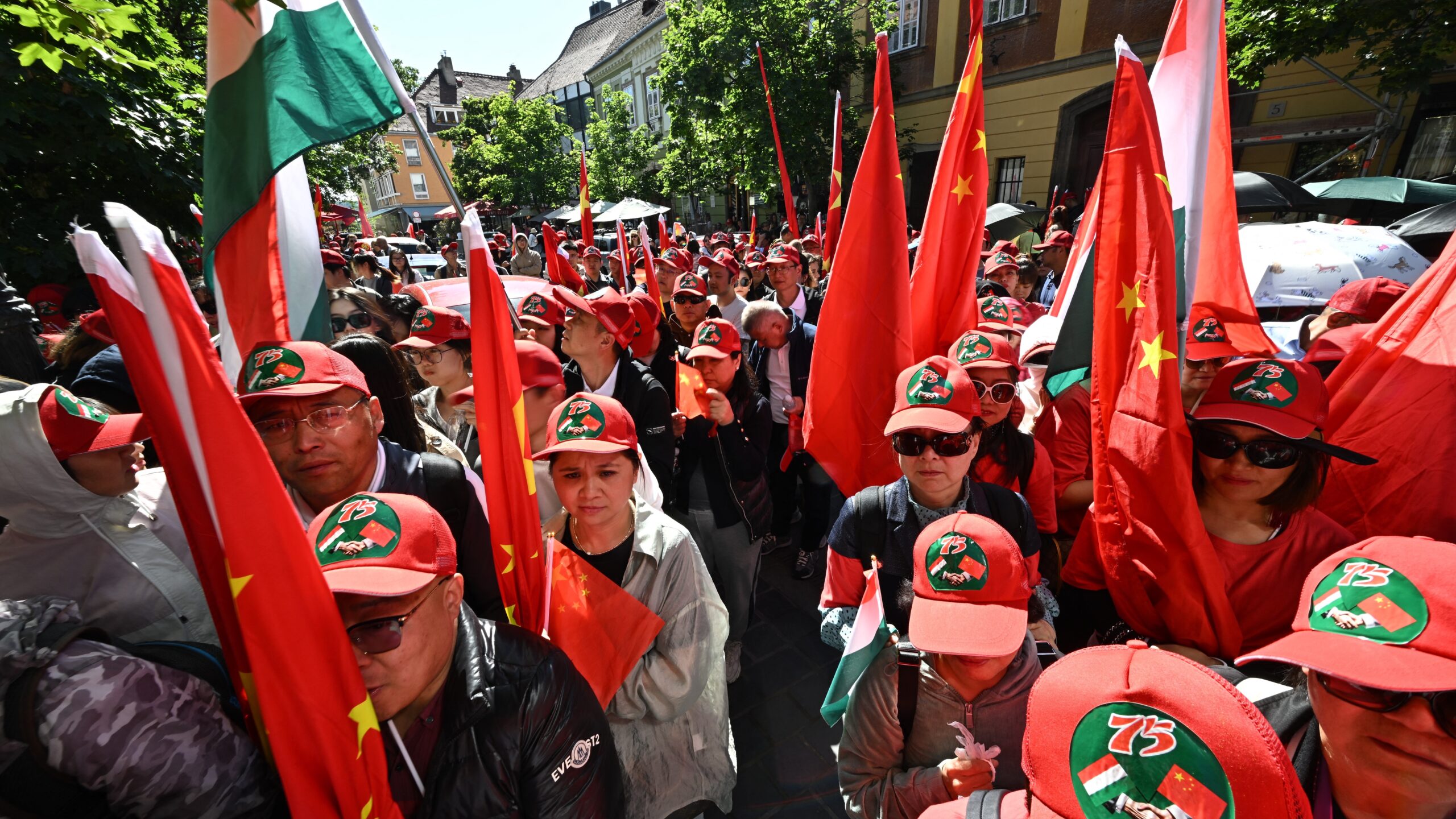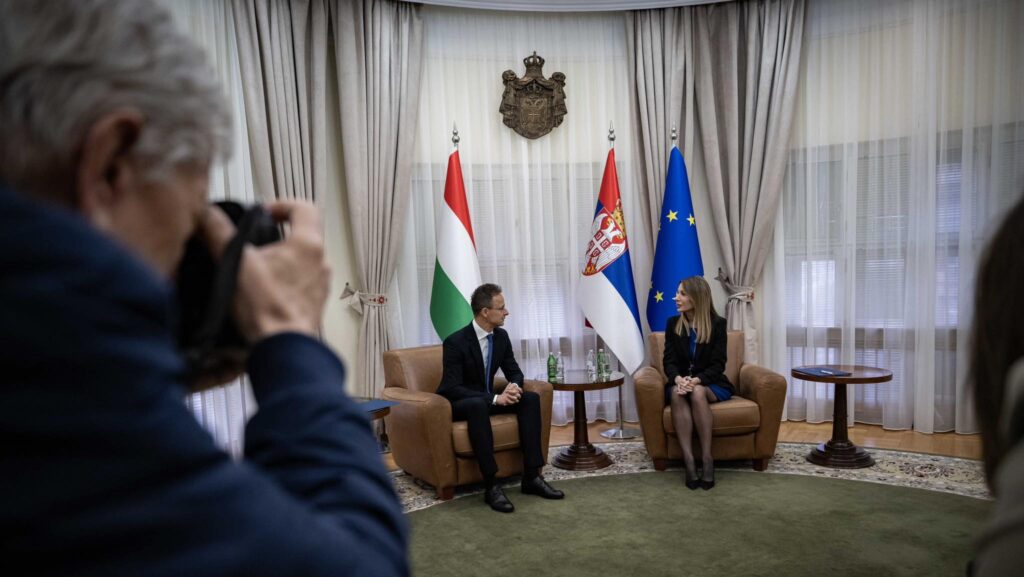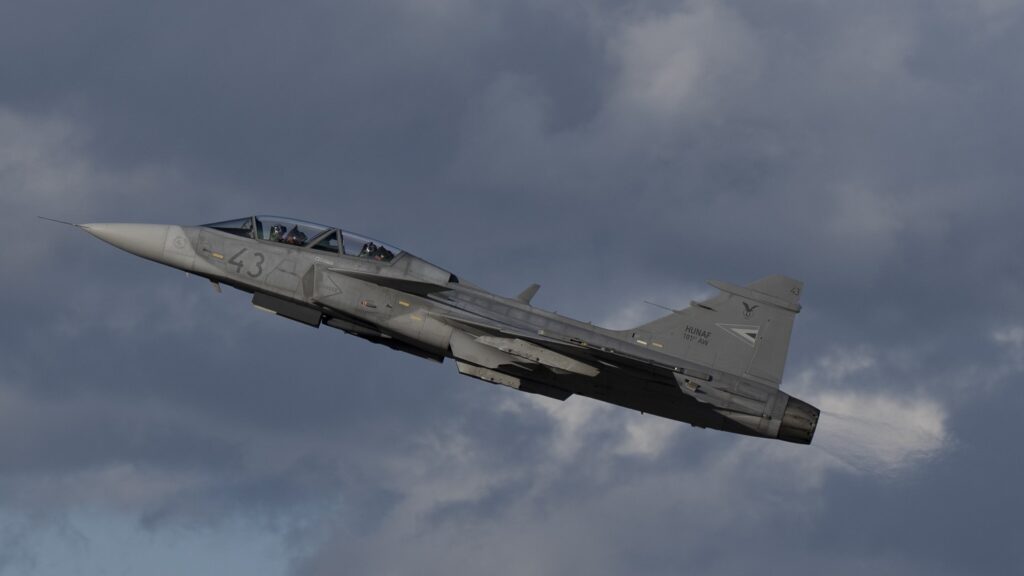A land-locked country of under ten million people would not normally figure very much in the global order, other than as a member of a larger alliance or a network of nations. But under Viktor Orbán, one of the world’s most politically successful and culturally effective democratic leaders, there’s now outsized interest in what Hungary’s success might teach conservatives around the world, especially in larger countries where conservative governments have been less robust in meeting the contemporary challenges to the West.
And the West is now challenged as rarely before. The global order that the Pax Americana has secured for seven decades, under which the world had until recently grown more safe, more fair, more rich, and more free, for more people than ever before, is now facing massive external and internal challenges. External, from the discontented dictatorships united only by their hatred of the West: militarist in Moscow, Islamist in Tehran, and communist in Beijing; and internal, from the collapsing belief in the Western project, exemplified by uncontrolled migration, the climate cult, identity politics, and the gender fluidity push that’s left most Western countries spiritually impoverished, economically challenged, socially divided, and militarily weak.
In fact, Hungary has handled the West’s internal challenges almost uniquely well.
Hungary has been remarkably effective in controlling both illegal and legal migration, often in defiance of its EU partners, who are only now belatedly adopting some of the border controls that Hungary has had in place for almost a decade. As well, Hungary hasn’t tried to solve its labour shortages, and to boost headline economic growth, by bringing people in from much poorer countries, often in the guise of students or ‘seasonal’ workers; and has almost completely avoided the phenomenon of large, often poorly integrated minority communities and the challenges they pose to social cohesion and even political stability. There’ve been no concessions at all to multiculturalism, with Orbán and his ministers insisting on their duty to keep the country’s character by actively honouring and promoting Hungary’s history and culture.
‘In my judgment, Hungary has sometimes been overly respectful towards aggressive dictators in Moscow and Beijing’
Despite constant pressure from the EU, Hungary has refused to legislate for same sex marriage or to cater to trans activism. Instead, Hungary has introduced substantial tax breaks for larger, intact families, especially for mothers who see their main work, at least for a time, as rearing the next generation in the home. This hasn’t boosted birth rates as much as hoped, but it’s certainly lifted them above the European average.
That said, in my judgment, Hungary has sometimes been overly respectful towards aggressive dictators in Moscow and Beijing; although it does also have to be conceded that, with most of Hungary’s Western partners, in their responses to the West’s external challenges, rhetoric has invariably been more robust than action.
Of course, Hungary is entitled to be anxious about the treatment of Hungarian minorities abroad, and reluctant to jeopardise the energy security provided by Russian gas and nuclear technology. And it’s entitled to contrast NATO’s response to Russia’s 2022 invasion of Ukraine with the response to Russia’s 1956 invasion of Hungary. Still, two wrongs don’t make a right. And while it’s fair enough to urge the Ukrainians to trade territory for security, for that to pass muster as a moral trade, it would have to mean security guarantees of Article Five strength.
Hungary may well find, as Australia has, that trade and investment with China can create long-term vulnerabilities as well as immediate economic benefits. After Australia called for a transparent international enquiry into the origins of the Wuhan virus, the Beijing government imposed bogus safety bans on some $20 billion worth of our exports. Despite the Australian government’s attempts to ‘normalise’ relations, there’s now routine harassment of Australian ships and planes exercising freedom of navigation in the areas Beijing wants to dominate.
As the CCP leadership endlessly repeats, China sees its ‘manifest destiny’ as taking Taiwan as soon as possible to avenge the ‘century of humiliation’ and becoming the world’s top power by mid-century. In this new Cold War, it will be impossible not to take sides; and in Australia’s case, we’re not choosing America (for all its faults) over China (notwithstanding its strengths) but democracy over dictatorship.
Countries that treat their own people brutally are hardly going to be magnanimous in their treatment of others, especially if they no longer have to be. That’s why it’s in everyone’s interests, including Hungary’s, to resist any new global order that’s dominated by dictatorships and to be very cautious about any changes to the global order that can only be commended on the ground of ‘realism’ rather than decency.
Even so, regardless of whether it’s doing much more or somewhat less well in handling all the various challenges that the West now faces, Hungary is invariably doing so in its own way. That’s why it’s currently such an interesting country and why so many foreign thinkers are eager to attend the Danube Institute’s forums.
The views expressed by our guest authors are theirs and do not necessarily represent the views of Hungarian Conservative.
Related articles:








